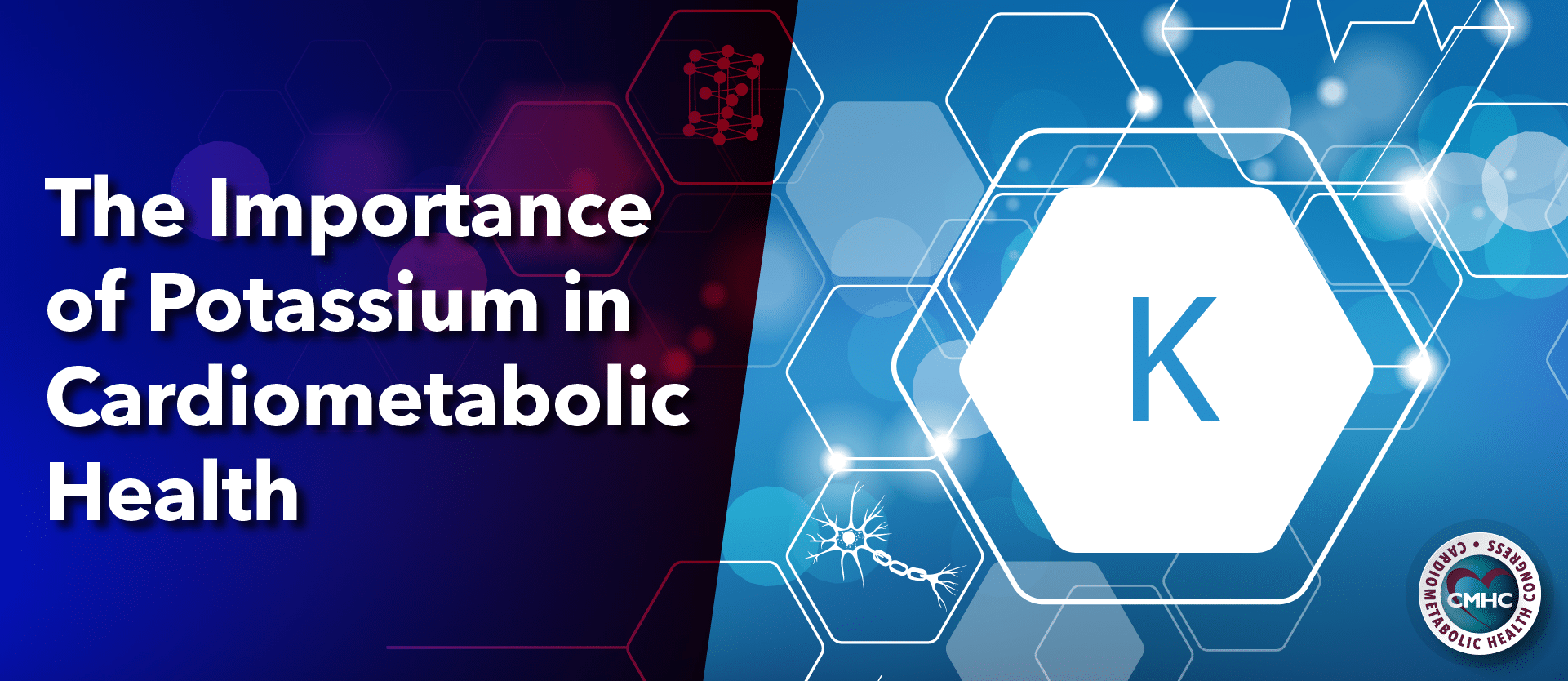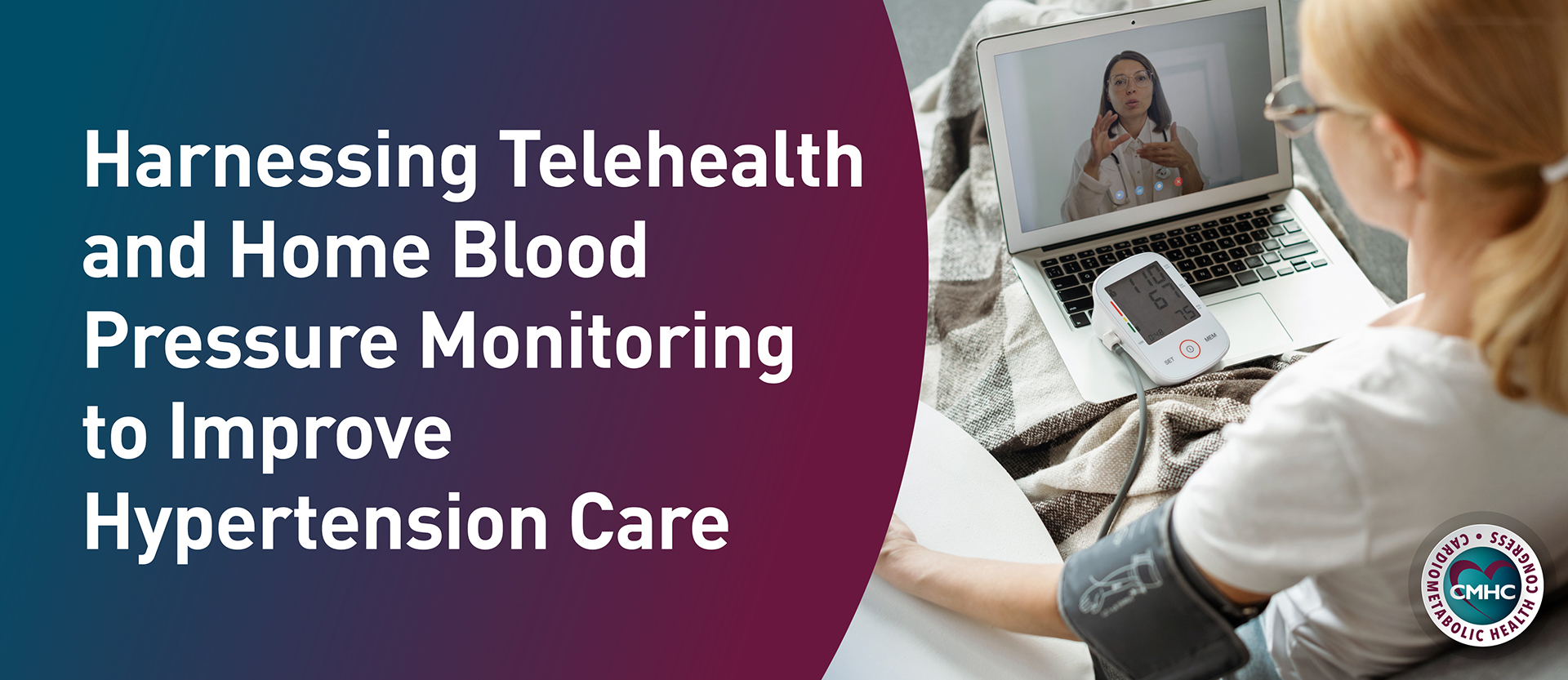As an essential mineral for physical health, potassium ensures the normal functioning of cells, regulates heart rate, synthesizes proteins, and metabolizes carbohydrates – all necessary mechanisms for optimal cardiometabolic health.
While the mineral used to be abundant in the human diet, today most Americans barely meet half of the daily recommended amount of potassium, yet consume approximately double the amount of sodium. Certain medications, a high sodium intake, and other risk factors can contribute to the insufficient potassium levels of the population – which in turn, elevate the risk cardiometabolic repercussions.
Previous research has revealed that a high sodium/potassium ratio raises cardiovascular disease risk, while other studies have found that increasing potassium consumption may reduce the risk of hypertension, heart disease, stroke, and other cardiovascular diseases. While the mechanism of action behind this connection is not fully known, researchers have found that low levels of potassium cause calcification and stiffness of the arteries in mouse studies, linking deficiency to common cardiovascular conditions. The insufficient consumption of potassium in the American population should not be neglected, as the potential ramifications are severe.
Potassium and Hypertension
The dietary imbalance caused by a high sodium/potassium ratio is thought to contribute to high blood pressure – which affects over one-third of the population. Research indicates that a diet high in potassium may help keep blood pressure levels within the healthy range and can help cut systolic blood pressure by more than 10 points in individuals with diagnosed hypertension. In the Dietary Approaches to Stop Hypertension (DASH) trial, researchers assessed the impact of different nutritional patterns on blood pressure levels, comparing three common diets.
The standard diet of the average American contained 3.5 daily servings of fruits and vegetables on average, providing 1,700 mg of potassium daily. In comparison, a fruit/vegetable-rich diet that included 8.5 servings of fruits and vegetables instead provided up to 4,100 mg of potassium daily, while a “combination diet” including the same amount of servings with added low-fat dairy products and reduced sugar and red meat intake averaged 4,400 mg of potassium per day.
The trial found that in patients with normal blood pressure, the fruit/vegetable-rich diet lowered systolic BP by 2.8 mm Hg and diastolic BP by 1.1 mm Hg more than the standard diet. On the other hand, the combination diet was able to lower blood pressure by 5.5 mm Hg and 3.0 mm Hg more than the standard diet. Patients with high blood pressure who followed the combination diet experienced an even larger reduction in BP, by as much as 11 mm Hg in systolic reading and 5.5 mm Hg in diastolic levels.
Potassium and Stroke Risk
Elevated blood pressure and hypertension are leading risk factors for stroke events – which may also be mitigated with increased potassium consumption. Previous research has found an inverse association between potassium intake and stroke risk, with the lowest associated risk occurring in patients who consumed 3,500 mg of potassium per day. In a separate prospective study, researchers followed 43,000 men for a period of eight years and found that men who consumed a median of 4,300 mg of potassium per day had a stroke risk reduction of 38% compared with those whose median intake was 2,400 mg per day. Further research has supported the connection between increased potassium consumption and a decreased risk for stroke and other cardiovascular diseases.
Recommendations for Potassium Intake
The AHA recommends increasing potassium levels through dietary changes for adults with blood pressure readings above 120/80 mm Hg who are otherwise healthy. Patients who are at risk of low potassium levels due to a high sodium diet or the use of medications should be advised to incorporate more dietary potassium to prevent heart health complications. However, potassium can be harmful for some individuals. Patients with kidney disease or any condition that affects the body’s metabolism of potassium can experience adverse effects; in these cases, consuming excess potassium should be discussed with a physician.
For otherwise healthy individuals looking to increase their potassium intake, eating more potassium-rich produce and limiting sodium or salt substitutes can help maintain healthy blood pressure and reduce the risk of heart disease and stroke events. In order to reach the recommended daily amount of potassium – 4,700 mg – patients should be advised to incorporate fruits, such as bananas, apricots, and oranges; vegetables, including squash and potatoes; and dried fruits, such as prunes and raisins.
As the currently prevalent American diet lacks the necessary nutrients to adequately promote cardiometabolic health, nutritional interventions may make a significant difference in patient and population-level outcomes. Maintaining blood pressure within a healthy range and improving the sodium/potassium ratio may significantly reduce the risk of cardiometabolic complications, especially in individuals prone to their development.


















